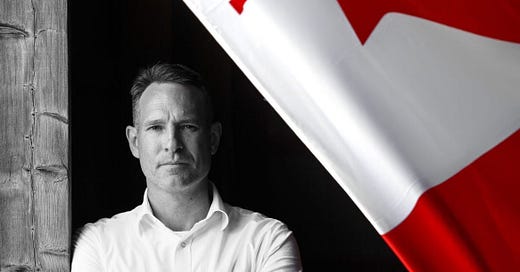The Taboo of Criticizing Israel: An Examination of Power, Truth, and the Label of Antisemitism
By Tom Marazzo, Captain (Ret’d) Canadian Army
The actions in Israeli since October 7, 2023, have drawn international attention and outrage. The images of devastation, the loss of civilian life, and the humanitarian crisis unfolding before our eyes raise legitimate questions about the proportionality and ethics of Israel's military response. However, the moment you voice criticism of Israel's actions, the discussion often gets derailed by accusations of antisemitism or claims that you support terrorist organizations like Hamas. This tactic is not only frustrating but also serves as a deliberate attempt to silence dissent, manipulate narratives, and avoid accountability.
The Essential Role of Freedom of Speech in This Discussion
At the heart of this issue lies the fundamental right to Freedom of Speech, a cornerstone of any democratic society. The ability to speak freely, to criticize, and to hold power to account is vital for ensuring that governments and militaries act within the bounds of international law and human rights. Without freedom of speech, injustices are allowed to continue unchallenged, and atrocities go unchecked.
Freedom of speech does come with consequences. Those who express their views must be prepared to face disagreement, criticism, or even social ostracism. However, these consequences should not include being labeled as a bigot or antisemitic without substantial evidence. To weaponize such accusations is to engage in Ethical Bypass, where the accuser avoids addressing the substance of the argument by resorting to defamatory labels. This tactic not only undermines genuine discourse but also cheapens the fight against real antisemitism.
When people are silenced or dismissed with baseless accusations, it creates an environment where atrocities can be committed without scrutiny. Protecting freedom of speech means allowing criticism of Israel’s actions without automatically equating it to hatred or prejudice. It means recognizing that questioning a government's policies or military actions is not an attack on an entire group’s identity.
The Right to Examine All Sides
If both sides of this conflict want to play on my emotions to garner support, then I have the right—and indeed the responsibility—to freely examine and discuss all aspects of the situation. The fact that I am allowed to criticize Palestinian actions without fear of being labeled, but not the Israeli government or the IDF, is deeply suspicious and indicative of a deliberate attempt to control the narrative. This imbalance of freedom suggests that one side is being protected from scrutiny, while the other is constantly subjected to it.
It’s akin to saying that Justin Trudeau is beyond reproach simply because Canada suffered a terrorist attack; such logic is flawed and dangerous. Trudeau's actions as a leader can and should be scrutinized regardless of external events. In the same way, the IDF's actions, as well as the policies of the Israeli government, must be open to criticism, especially when they have profound consequences for millions of people. Blindly following everything the IDF does without question is not only irresponsible but also fundamentally undemocratic.
The Use of Power in Shaping the Narrative
When we analyze why it’s so difficult to criticize Israel's actions, we must recognize the various forms of power at play, particularly Informational Power and Legitimate Power. The Israeli government, supported by powerful lobbies and allies in Western governments, wields significant influence over media narratives, ensuring that any criticism is quickly labeled as antisemitic or pro-terrorist. This control over information serves as an effective tool to shield Israel's actions from scrutiny and debate.
The control over the narrative allows Israel to maintain an image of self-defense, regardless of the scale or brutality of its military operations. By shaping the narrative this way, the IDF's actions are framed as a response to terrorism, not as acts of aggression or retaliation, even when the facts on the ground suggest otherwise.
Antisemitism as a Shield: The Weaponization of a Label
One of the most potent tactics used to silence critics of Israel is the accusation of antisemitism. This label, due to the weight of history and the horrors of the Holocaust, carries immense power. It acts as a Truth Shield, effectively blocking any attempt to scrutinize Israel's actions by suggesting that such criticism is rooted in hatred of Jewish people rather than an examination of the facts.
This use of the antisemitic label is a form of Holocaust Hijacking, where the trauma and atrocities of World War II are used to deflect any criticism of modern-day actions. It’s an attempt to make the conversation about identity rather than actions, thereby evading accountability. Criticizing the IDF's actions in Gaza is not a denial of Jewish suffering; rather, it's a call for examining the actions of a government and military that has significant power over another people.
Keep reading with a 7-day free trial
Subscribe to Tom’s Newsletter to keep reading this post and get 7 days of free access to the full post archives.



